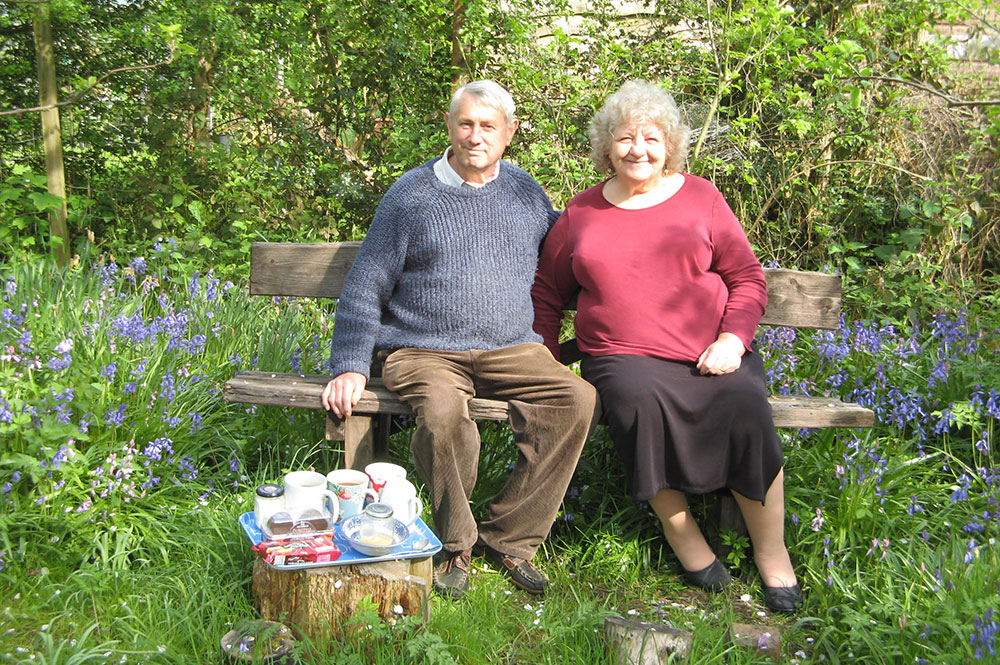Tributes have been paid to one of York’s greatest champions of nature and ecology.
Barry Potter, a founder member of the York Natural Environment Trust, died on Friday after suffering a heart attack at his home on Knapton Lane. He was 74.
His family paid tribute to the “brilliant, amazing” NHS staff – including the ambulance paramedics and intensive care team at York Hospital – for doing all they could to save him.
Well known across the city for his work discovering, saving and enhancing natural spaces such as Rawcliffe Meadows, St Nicks Nature Reserve, and the railway pond at Mayfields off Tadcaster Road, Barry was a tireless defender of biodiversity.
Throughout his many years in the city he challenged planned developments if he thought they would be detrimental to York’s flora and fauna – and was at once a powerful advocate and an impressive adversary.
An amazing dad

Born in south London, Barry studied horticulture at Wye College, part of the University of London.
He worked for the Bromley parks department and then at Writtle College in Essex before moving up to Yorkshire to become a lecturer in horticulture at Askham Bryan College, and on secondment to Leeds University’s school of Landscape Architecture.
“He was an amazing dad. We were different people but we definitely shared the same values,” his son James told YorkMix.
“I loved him so much. He taught me an awful lot about the natural environment.
“My fondest memories are of fishing with him, and spending time in the countryside together.”
In 2000, aged 55, he took early retirement to spend more time at home, and pursue freelance work in fruit orchard restoration.
“It was a bit of a running joke in our extended family that Dad was absolutely obsessed with apples.
“Well-drilled into my 13-year-old son are 20 to 30 different types of apple, which he can now consider himself to be a connoisseur of.”
Barry regularly spoke at Brogdale in Kent, home to the National Fruit Collection, and contributed to a book on old apple varieties.
He also used the apples from the orchard in his garden to make cider – and one of his legacies is hundreds of bottles of cider now stored in a pantry.
Passion for ecology

James said his father’s “passion has always been ecology” which he pursued through his work with YNET, founded in 1988. Its aim: “to conserve, protect and enhance the natural environment of York”.
From being a purely campaigning organisation YNET came to be a landholder and manager, first with Rawcliffe Meadows, early in 1991, then Danesmead Meadow in 1992 and St Nicholas’ Field in 1994.
Independent councillor for Osbaldwick Mark Warters paid tribute to Barry.
“I was very sad to learn of the passing of Barry who I first came across at Askham Bryan College where he was one of the most popular lecturers.
“I read about many of his environmental or campaigning exploits in the Yorkshire Evening Press on a number of occasions.
“Many years later our paths crossed again when Barry gave up so much time and expertise in trying to fight City of York Council’s development plans for the Osbaldwick Meadows which, after a decade-long fight, was built on, now becoming Derwenthorpe.
“Barry always gave his time freely to assist others in planning and environmental matters. He appeared at numerous public inquiries after his retirement left him time to pursue YNET matters, alongside his numerous hobbies like fishing and of course apples, in which he was an expert.”
A family man
James said: “Everyone ‘green’ in York knew who my Dad was – and some of those on the other side of the fence in the development industry, even if they didn’t agree with him, did respect him as an adversary.”
But first and foremost “he was very much a family man. His number one interest was his grandkids Matthew and Evie.
“All three of them got on famously, and they loved him so much.
“We all got to say our goodbyes and tell him we loved him.”
Barry leaves a widow, Kate, son James, and grandchildren Matthew, 13, and Evie, six.
A public funeral service will be held on Monday 18 May at 11.30am, streamed via Zoom video conferencing. This will be followed by a short, private ceremony at York Crematorium.
The family request that no flowers are sent but that instead donations are made to British Heart Foundation and/or environmental charities.
